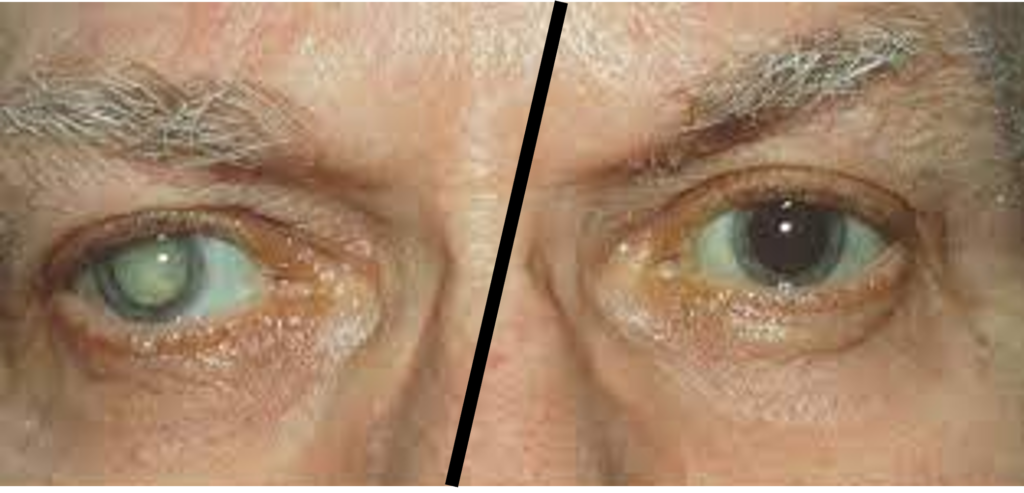
Are you noticing cloudy vision or struggling to see at night? You might have cataracts, a clouding of the eye’s natural lens that affects millions of people, especially with age. But don’t worry, this treatable condition won’t steal your golden years! Here at VIEW CARE Eye Hospital in Delhi, we specialize in advanced cataract surgery to help you rediscover clear vision.
What are Cataracts and How Do They Affect Your Sight?
Think of your eye’s lens like a camera lens. Normally, it’s crystal clear, focusing light onto the retina for sharp vision. But over time, the lens can cloud, blurring your vision and making everyday tasks like reading or driving difficult. Cataracts typically develop slowly and are often related to aging. However, they can also result from other factors, such as injury, certain medications, and diseases like diabetes.
Signs & Symptoms to Watch Out For:
- Cloudy or blurry vision
- Difficulty seeing at night or in low light
- Increased sensitivity to bright lights or glare
- Halos or rings around lights
- Frequent changes in eyeglass prescriptions
- Faded or dull colors
Getting a Diagnosis is Easy and Painless
A comprehensive eye exam at our eye care center is all it takes to diagnose cataracts. We’ll review your medical history, test your vision, and examine your eyes using advanced technology.
Advanced Cataract Surgery Options for a Brighter Future
Cataract surgery is recommended when cataracts begin to significantly affect your quality of life and daily activities. If you have trouble reading, driving, or seeing clearly even with updated eyeglasses or contact lenses, it’s time to consider surgical options.

- Traditional Cataract Surgery: A safe and effective procedure with a long track record of success.
- Laser Cataract Surgery: Offers enhanced precision and potentially faster recovery.
- Robotic Cataract Surgery: Cutting-edge technology for exceptional accuracy and optimal results.
- Sutureless Cataract Surgery: Quicker healing and less discomfort with self-sealing incisions.
Recovery and Beyond: What to Expect After Surgery
Immediate Aftercare
After cataract surgery, you will need to take certain precautions to ensure a smooth recovery:
- Use Prescribed Eye Drops: These helps prevent infection and control inflammation.
- Protect Your Eye: Wear an eye shield or glasses as directed by your doctor to protect your eye from injury.
- Avoid Strenuous Activities: Refrain from heavy lifting, bending over, or vigorous activities for a few weeks.
Long-Term Care
Regular follow-up appointments with your eye doctor are essential to monitor your recovery and the health of your eye. Most people experience improved vision within a few days, but complete healing can take up to eight weeks.
Living with Cataracts Before Surgery: Tips to Manage Symptoms
If you’re not ready for surgery yet, there are ways to manage your cataracts and maintain good vision:
- Updated Eyeglasses or Contact Lenses: Getting a recent prescription can make a big difference.
- Brighter Lighting: Improve lighting at home and work for better visibility.
- Magnifying Aids: Utilize magnifying glasses for reading and close-up tasks.
- Avoid Night Driving: If night vision is a concern, avoid driving at night.
- Schedule Regular Eye Exams: Monitor cataract progression and determine the right time for surgery.
Preventing Cataracts: Taking Charge of Your Eye Health
While cataracts are a natural part of aging, there are steps you can take to reduce your risk:
- Protect Your Eyes from UV Rays: Wear sunglasses that block UV-A and UV-B rays.
- Eat a Healthy Diet: Nourish your eyes with fruits, vegetables, and foods rich in antioxidants.
- Maintain a Healthy Weight: Manage weight and control conditions like diabetes to lower cataract risk.
- Don’t Smoke: Smoking significantly increases your risk of cataracts.
- Get Regular Eye Exams: Early detection is key, especially if you’re over 60 or have risk factors.
Conclusion
References
- American Academy of Ophthalmology. (n.d.). Cataract Surgery. Retrieved from AAO
- National Eye Institute. (n.d.). Facts About Cataract. Retrieved from NEI
- Mayo Clinic. (n.d.). Cataracts. Retrieved from Mayo Clinic
- WebMD. (n.d.). Cataract Surgery. Retrieved from WebMD
By understanding cataracts and the modern advancements in treatment, you can take proactive steps towards maintaining your vision and overall eye health. If you suspect you have cataracts or are experiencing any vision changes, consult with an eye care professional to explore your options.


